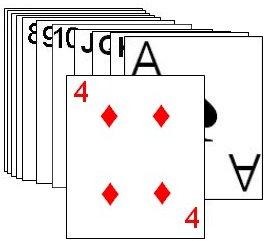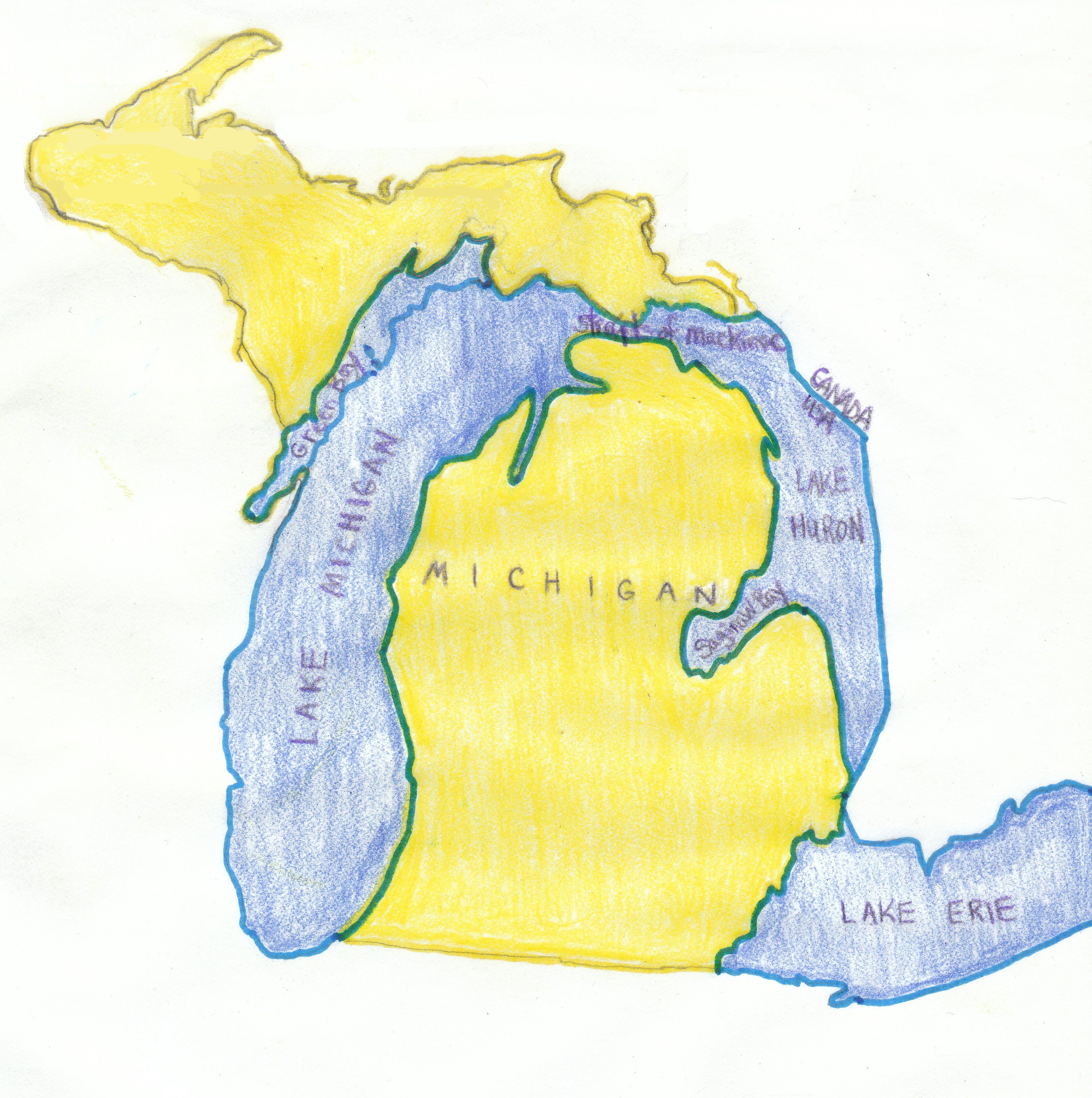 Michigan is a card game that is simple to learn and can be a lot of fun for all. The game of Michigan is also known by a number of other names, including Boodle, Newmarket and Saratoga. It is the most popular member of the "Stops" family of card games which are characterized by the playing of sequences of cards until stopped by the lack of a particular card.
Michigan is a card game that is simple to learn and can be a lot of fun for all. The game of Michigan is also known by a number of other names, including Boodle, Newmarket and Saratoga. It is the most popular member of the "Stops" family of card games which are characterized by the playing of sequences of cards until stopped by the lack of a particular card.Michigan is played by from 3 to 8 players and uses the standard 52 card deck. The ranking of the cards when playing Michigan is as follows, from high to low (Ace,King,Queen,Jack,10,9,8,7,6,5,4,3,2).
In addition to this standard deck a special layout is added to the center of the table. Traditionally this consists of four specific cards removed from another deck of cards and laid face up in the center of the table as indicators, where all players can clearly see and reach them. These cards are the Ace of Hearts (♥), King of Clubs (♣), Queen of Diamonds (♦) and Jack of Spades (♠). These cards are called the Boodle cards. It is recommended that these Boodle cards have a differing back design than those used in the actual play of the game to help prevent them from getting accidentally shuffled in with the regular pack at the end of each hand. Alternatively, a pre-designed layout sheet can be used as these boodle cards are not actually added to the deck or anyone's hand. Click this link to print a handy, page sized display of this layout for use in the game of Michigan (also shown below).
After players are seated, any player can begin dealing cards face up to each player, clockwise around the table in order to determine who will become the first dealer. The first player to receive a Jack becomes the starting dealer. For each hand dealt thereafter, until the conclusion of the game, the deal rotates in a clockwise direction around the table, player to player.
Before the start of the actual game, an equal number of chips or other tokens should be distributed evenly to each player. This can be any number such as 50 or 100 of these chips provided to each individual player.
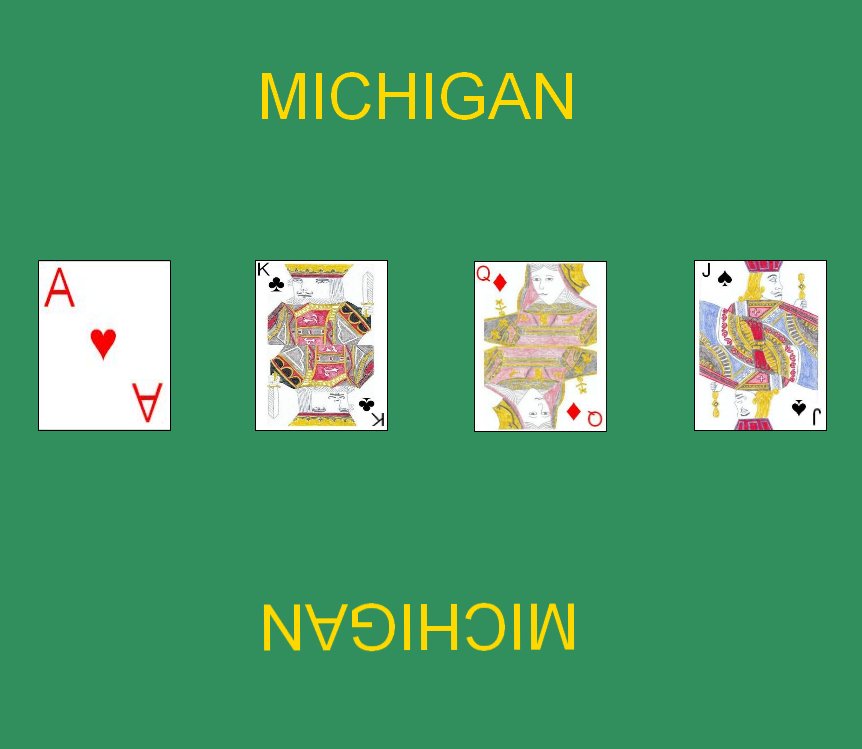 Once the dealer is selected, he shuffles the deck and the player to the dealers immediate left should then cut the cards.
Before dealing each hand, the dealer must place two of his chips on each of the four boodle cards on the layout. Each other player must place one of his chips on each boodle card. After all players have placed their chips on the boodle cards, the dealer begins dealing. He begins the deal by dealing one card face down to each player in a clockwise rotation around the table. Before the first player receives their card, which should be the player to his immediate left, he deals a card face down to begin an extra, widow hand. The dealer continues to deal the cards, one at a time in this rotation to each player and the widow hand until the entire deck has been dealt out. If some players get one extra card, this is to be expected as the deck will often, due to the number of players participating in the current game, not divide up amongst the players in an exactly even number. The face down widow hand takes no other part of the play in the hand once it is initially dealt out.
Once the dealer is selected, he shuffles the deck and the player to the dealers immediate left should then cut the cards.
Before dealing each hand, the dealer must place two of his chips on each of the four boodle cards on the layout. Each other player must place one of his chips on each boodle card. After all players have placed their chips on the boodle cards, the dealer begins dealing. He begins the deal by dealing one card face down to each player in a clockwise rotation around the table. Before the first player receives their card, which should be the player to his immediate left, he deals a card face down to begin an extra, widow hand. The dealer continues to deal the cards, one at a time in this rotation to each player and the widow hand until the entire deck has been dealt out. If some players get one extra card, this is to be expected as the deck will often, due to the number of players participating in the current game, not divide up amongst the players in an exactly even number. The face down widow hand takes no other part of the play in the hand once it is initially dealt out.After the entire deck has been dealt out, the player to the dealers immediate left makes the first play. After examining his hand, this player may play a card of any suit from his hand, but must play the lowest card he holds of that suit.
The player who then has the next consecutive card in the same suit then plays it, no matter where he sits at the table. This could even be the same player who played the first card if he happens to be the player holding this next card in proper sequence in that suit. This continues with whichever player holds the next card in series of the same suit playing the appropriate card. When a player plays such a card, he should play the card directly in front of himself, face up on the table. This continues until no player can play any further cards, either because the Ace of that suit (the highest card) has just been played or the next card in the sequence is either in the widow hand or has already been played in an earlier sequence. When this happens it is called a "Stop".
In this event, the player who played the last card in this series before the stop, may then begin the next series of cards to be played. He can select any suit other than the last suit just played. He must play the lowest card he has of that suit. If he does not have cards of any other suit than the one of the last sequence played, he must pass and the player to his immediate left may then play his lowest card of any other suit. If this player too does not have cards of any other suit, he also passes, with the turn moving to the next player to the left. If, in the rare circumstances no players have a card of another suit, the original player, after all other players have passed, must play his lowest card of the original suit.
When a player is able to play a card from their hand exactly matching one of the four Boodle cards (in suit and rank) on the table layout, he may immediately collect all the chips currently on that card from the layout.
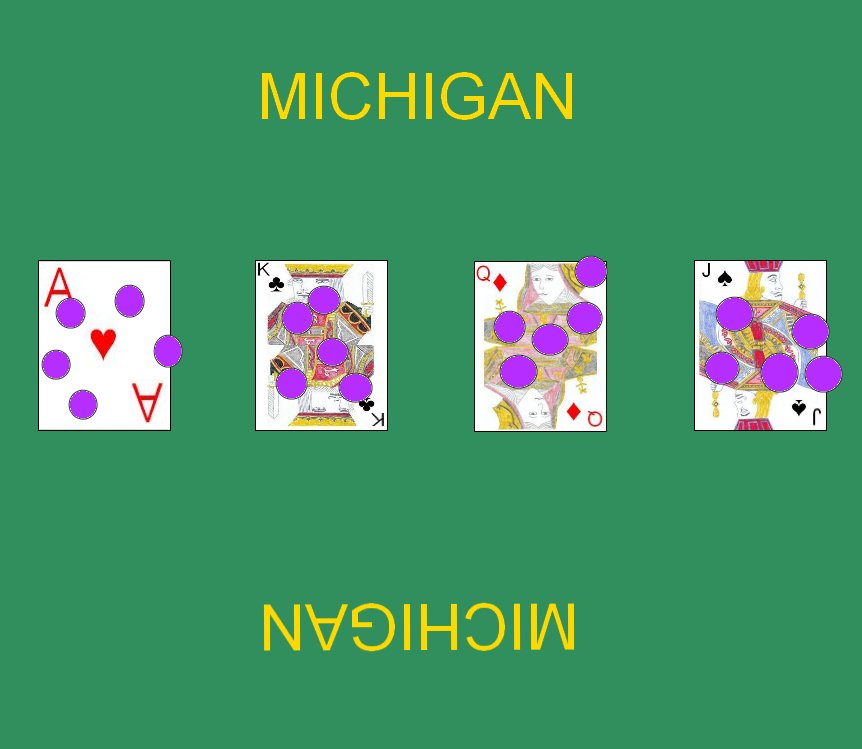 In addition, if a player is able to play the last card in their hand legally, they collect one chip from each of the other players for each card remaining in that players hand. Any chips that remain on any of the boodle cards (because the corresponding card was never played during this hand) remain there until the following hand, although all players are still obligated to place their required number of chips (two for the dealer, one for each other player) on each card at the beginning of each hand. The deal rotates clockwise around the table after each hand.
In addition, if a player is able to play the last card in their hand legally, they collect one chip from each of the other players for each card remaining in that players hand. Any chips that remain on any of the boodle cards (because the corresponding card was never played during this hand) remain there until the following hand, although all players are still obligated to place their required number of chips (two for the dealer, one for each other player) on each card at the beginning of each hand. The deal rotates clockwise around the table after each hand.If a player runs out of chips during the course of the game for any reason, they must drop out of the hand. After a set number of hands, or an agreed upon set amount of time, the player with the most chips is declared the winner of the game.
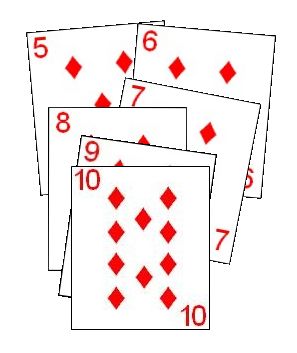 Although the base game of Michigan is often called Boodle, there is also a distinct variation of Michigan which goes by the name Boodle as well. This game differs from Michigan primarily in that it features several of the optional rules described above. In this game the current dealer decides how many chips each player (including himself) must distribute on the boodle cards. This is often set at four, however in some games this may be higher or lower. The players may distribute the required chips on the cards in any combination.
Although the base game of Michigan is often called Boodle, there is also a distinct variation of Michigan which goes by the name Boodle as well. This game differs from Michigan primarily in that it features several of the optional rules described above. In this game the current dealer decides how many chips each player (including himself) must distribute on the boodle cards. This is often set at four, however in some games this may be higher or lower. The players may distribute the required chips on the cards in any combination.
